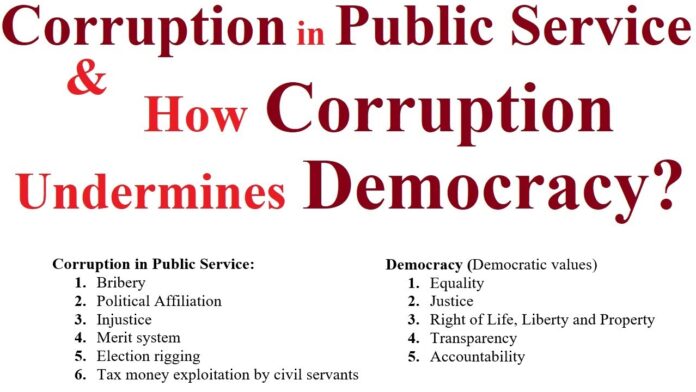Democracy, often regarded as the ideal form of governance, is not immune to failure. When it does not deliver on its promises of representation, justice, and equality, citizens face a difficult question: when and what actions are justifiable to correct its course? The responses to these failures vary across nations and contexts, with significant consequences for the citizens involved and the international community’s reaction.
This article examines cases where democracy has faltered, the actions taken by citizens, the outcomes of these efforts, and how they are perceived by leading Western democracies.
Recognizing Democratic Failure
Democracy falters when:
- Government Becomes Unresponsive: Persistent neglect of public needs such as housing, education, or health care.
- Corruption and Abuse of Power: Leaders enrich themselves or misuse authority.
- Erosion of Rights: Suppression of free speech, press, or voting rights.
- Election Manipulation: Fraudulent or nontransparent electoral processes undermine trust.
When these failures occur, citizens must decide whether to push for reform through legal and institutional means or resort to more drastic actions.
Examples of Citizen Actions and Their Outcomes
1. Tunisia: The Jasmine Revolution (2010-2011)
- Action: Widespread protests erupted after Mohamed Bouazizi, a street vendor, set himself on fire in response to police harassment and systemic corruption. Citizens demanded the ousting of autocratic leader Zine El Abidine Ben Ali.
- Result: Ben Ali fled the country, and Tunisia transitioned to a democratic system. The revolution inspired the Arab Spring, but subsequent years have been marked by economic struggles and political instability.
- Western Reaction: Western democracies lauded the protests as a victory for democracy and human rights, offering diplomatic and financial support for Tunisia’s transition.
2. Hong Kong: Pro-Democracy Protests (2019-Present)
- Action: Citizens organized mass protests against the Chinese government’s efforts to erode Hong Kong’s autonomy and freedoms. Protesters used peaceful marches, strikes, and digital campaigns to garner international attention.
- Result: Beijing imposed the controversial National Security Law, severely curtailing freedoms. Many activists were arrested, and some fled the region.
- Western Reaction: Leading democracies condemned China’s actions, with the U.S. and European countries imposing sanctions and providing asylum to activists. However, direct intervention was limited.
3. United States: Civil Rights Movement (1950s-1960s)
- Action: African Americans organized marches, sit-ins, and boycotts to demand an end to racial segregation and discrimination. Leaders like Martin Luther King Jr. championed nonviolent resistance.
- Result: Major legislative victories, including the Civil Rights Act (1964) and the Voting Rights Act (1965). The movement transformed U.S. society but did not entirely eliminate systemic racism.
- Western Reaction: As the U.S. was already a leading democracy, the movement reinforced its narrative of self-correction, highlighting democracy’s capacity for reform when citizens act decisively.
4. Myanmar: Anti-Coup Protests (2021-Present)
- Action: Citizens opposed the military coup that ousted a democratically elected government. Protests, civil disobedience, and strikes became widespread.
- Result: The military responded with violence, leading to thousands of deaths and arrests. The resistance persists but with limited success.
- Western Reaction: Western democracies condemned the coup and imposed sanctions but have struggled to provide meaningful support beyond statements and limited aid.
What Actions Are Justifiable?
Peaceful Protest and Advocacy
- Why: Nonviolent actions preserve moral legitimacy and attract international support.
- Examples: The U.S. Civil Rights Movement and Tunisia’s protests during the Arab Spring.
Civil Disobedience
- Why: Challenges unjust laws while emphasizing the need for reform without violence.
- Examples: Gandhi’s Salt March in India and Hong Kong’s peaceful marches.
Armed Resistance or Revolution
- Why: Considered a last resort when all peaceful avenues have been exhausted.
- Examples: The American Revolution (1775-1783); French Resistance during World War II.
- Risks: Armed resistance often leads to prolonged violence, instability, and unintended consequences.
Western Democracies and Their Reactions
Supportive Rhetoric and Sanctions
Western democracies frequently praise pro-democracy movements, imposing sanctions or issuing condemnations against oppressive regimes. For instance, the U.S. and EU strongly supported Ukraine’s Maidan Revolution in 2014, providing financial and logistical support.
Selective Support
Western support often aligns with strategic interests. While backing Tunisia’s revolution, similar movements in Bahrain during the Arab Spring received less attention due to the country’s alliance with the West.
Reluctance for Direct Intervention
Direct military or economic intervention is rare, as it risks escalation. For instance, Western democracies supported Myanmar’s anti-coup protests diplomatically but refrained from direct involvement.
Conclusion: The Path Forward
When democracy fails, citizens have both the right and responsibility to act. While peaceful methods are preferable, history shows that even drastic measures may be justified when systemic oppression persists. Western democracies often play dual roles as supporters and critics, but their actions are shaped by geopolitical interests as much as democratic principles.
To ensure a justifiable and effective response, citizen actions must be proportional, inclusive, and rooted in the values of democracy itself. In the face of democratic failure, unity, resilience, and adherence to moral principles are the keys to fostering long-term reform and stability.
Arthur Ignatius
Chairman
Arthur Ignatius Foundation
Additional Reading






